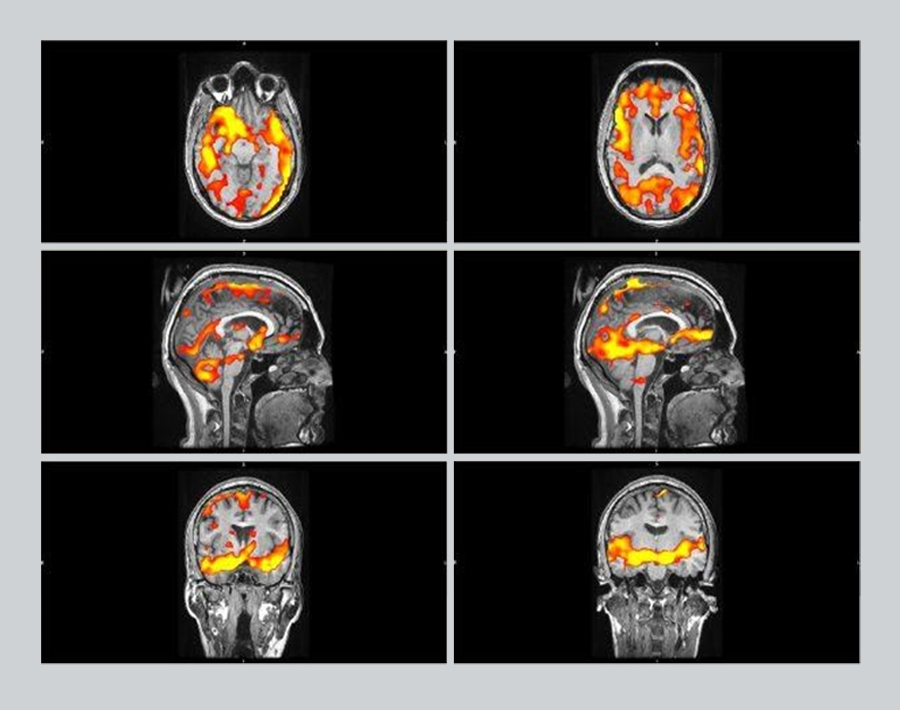Post-Traumatic Stress Disorder (PTSD)
Today, PTSD can be treated more effectively than ever. The clinical availability of advanced brain imaging technologies such as functional MRI (fMRI) allows TMS therapy to be precisely targeted to treat severe anxiety, flashbacks, overwhelming anger, and other symptoms of PTSD where medication and other conventional treatments fail to provide relief.
What is PTSD?
Post-Traumatic Stress Disorder (PTSD) is a type of Anxiety Disorder. PTSD is often associated with active duty military personnel, veterans or first responders but can afflict any individual. PTSD is generally thought to result from experiencing a traumatic event like war, fire, a violent act, or accident. PTSD victims may experience anger, frustration, fear, anxiety, flashbacks, sadness or hopelessness, similar to depression sufferers. Individuals suffering from PTSD often re-experience the trauma through dreams or recollections producing debilitating symptoms that can harm their personal lives, work performance, and physical health. Historically, PTSD has been treated using drug therapy and prolonged exposure therapy (a form of CBT). PTSD is estimated to affect 3.5% or 7.7 million U.S. adults. [1] Today many physicians treat PTSD with alternative therapies such as TMS. Treatment of PTSD with TMS therapy has fewer side effects and a greater positive impact than traditional drug therapy alone for many patients.

The fMRI images below depict a typical PTSD sufferer. The patient’s anxiety is not localized, demonstrated by the variable regions involved at different depths per axis. Upper row: Sagittal view; Middle row: Axial view; Coronal view.
Our approach
Physicians at the TheraMind Center of Newport Beach successfully treat persons suffering from PTSD using TMS therapy. In most such cases the TMS therapy is informed and targeted by prior functional MRI imaging (fMRI), one of our advanced diagnostic tools. Using the fMRI imagery, individualized treatment protocols are developed to reflect each patient’s unique neurophysiology and specific stimulation targets. This often results in multiple treatment sites and differing stimulation parameters per site during a single TMS treatment session.
Results
PTSD is not localized. It is a condition involving multiple brain regions and structures at varying depths, some of which are beyond the reach of current FDA-approved therapeutic technologies. Thus, successful treatment of PTSD is significantly more difficult than for depression. However, in many instances it can be accomplished with the aid of advanced imaging and multi-site, multi-frequency, variable intensity treatment protocols. TheraMind physicians and staff were recently recognized in Neurological Sciences, a scientific medical journal, for their roles in treating a person on active military duty who had been suffering for over a year from a rare form of PTSD known as dissociative PTSD. [2] This patient had been informed after being examined by several of the most prestigious medical institutions in the U.S. that there was nothing that could be done to correct the problem. We are proud to report that our patient recovered and is back on active duty.
Research
A research paper published in 2019 in “Brain and Behavior” summarized the clinical studies published through December 2017 on the efficacy of TMS therapy to treat PTSD, concluding that “TMS demonstrated large overall treatment effect for…PTSD…including applying high frequency over the right dorsolateral prefrontal cortex…suggesting [due to the relatively few published clinical studies as of that date] that TMS may be an effective treatment for PTSD.” [3] The use and efficacy of fMRI imaging in the treatment of PTSD has been extensively and favorably reviewed in a number of clinical research studies. [4]
References
- “Anxiety Disorder Statistics 2019 – U.S. and Worldwide.” MindfulnessSearching.com, https://www.mindfulsearching.com/anxiety-statistics/. Accessed June 26, 2020.
- Blades, Robin, et al. “Treating dissociative post-traumatic stress disorder presenting as a functional movement disorder with transcranial magnetic stimulation targeting the cingulate gyrus”, Neurological Sciences, 1 May, 2020. https://doi.org/10-1007/s 10072 – 020 – 04433 – 2.
- Brain and Behavior. 2019;9:e01284. https://doi.org/10.1002/brb3.1284 wileyonlinelibrary.com/journal.
- Hughes, Katherine C. and Shin, Lisa M., “Functional neuroimaging studies of post-traumatic stress disorder”, Expert Rev. Neurother., 2011 February; 11(2): 275 – 285. doi.10.1586/ern. 10.198.
